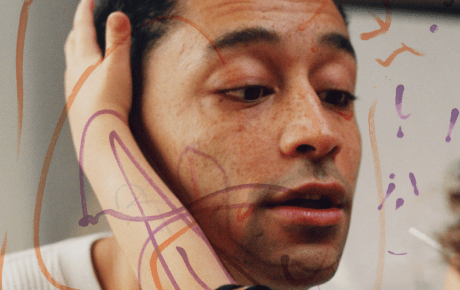Cat, born to a Greek-Cypriot father and a Swedish mother, first came to industry attention as a songwriter. He was signed by publishers Ardmore & Beechwood when still only 17, by which time he’d already written the remarkably mature and reflective ‘The First Cut Is The Deepest,’ made into a hit by PP Arnold and later covered by Rod Stewart and endless others.
In 1966, producer Mike Hurst (late of the Springfields) took Georgiou under his wing and by that September, renamed Cat Stevens, he was in the UK top 30 with ‘I Love My Dog.’ The infectious single ‘Matthew and Son’ was in the top ten early in the new year, as was an album of the same name soon afterwards.
Further pop hits ensued, such as ‘I’m Gonna Get Me A Gun’ and ‘A Long Night,’ but after a serious illness with tuberculosis, it was a more studious, romantic and spiritual Stevens that re-emerged in 1970. Out of his Deram contract, he signed with Chris Blackwell’s Island and released the album Mona Bone Jakon. It wasn’t an immediate success, but it did include the beautiful, intense UK top ten single ‘Lady d’Arbanville.’ Stevens was establishing the style that would make him one of the definitive singer-songwriting talents of the 1970s.
For the next few years, he was a chart fixture, perfecting the art of making expertly crafted albums that included exemplary pop singles, memorable album tracks and hits for others. Tea For The Tillerman offered ‘Where Do The Children Play,’ ‘Father and Son’ and ‘Wild World,’ the last of which became his first US hit as well as turning into a Jimmy Cliff anthem.
Teaser and the Firecat contained the gentle ballad hits ‘Moonshadow’ and ‘Morning Has Broken’; Catch Bull At Four had the effusive hit ‘Can’t Keep It In,’ and ‘Foreigner’ and Buddha and the Chocolate Box kept Stevens prominent in the public imagination.
Yet Stevens’ increasing dissatisfaction with his life was heightened by a 1976 incident in which he nearly drowned. He converted to the Islamic faith at the end of 1977 and took the new name Yusuf Islam the following year, devoting himself to his faith and leaving his secular career behind him.
But, as Yusuf Islam, 2006 brought a warmly-welcomed return to Western music with the Polydor album An Other Cup, and a return to his former Island home for the 2009 follow-up Roadsinger, which hit the UK top ten. In April 2014, as Cat Stevens, he was inducted into the Rock and Roll Hall of Fame. That year brought another new mainstream release in Tell ‘Em I’m Gone, which Yusuf produced with Rick Rubin. It reached the top 30 on both sides of the Atlantic.
In 2016, the artist’s deeply humanitarian motivation showed itself again as he launched a campaign to help child refugees in Europe with a charity concert at London’s Central Hall, Westminster, and released the poignant single, He Was Alone.
“Music is not just a business. It’s a lifestyle,” he told Rolling Stone. “What I was seeking most of my life was actually a better life, and that’s reflected a lot in my own songs. Therefore when I found something that got me onto a higher level of living, and perhaps personal satisfaction, then I didn’t miss anything. The only thing was, when I did break away, I did miss the personal connection to the ones who still liked me and believed in me. But I had to get my own life.”
Article originally published on uDiscoverMusic.com.
SEE ALSO: Growing Up With ‘Father And Son’ And Reflecting On The Journey Of Yusuf/Cat Stevens












